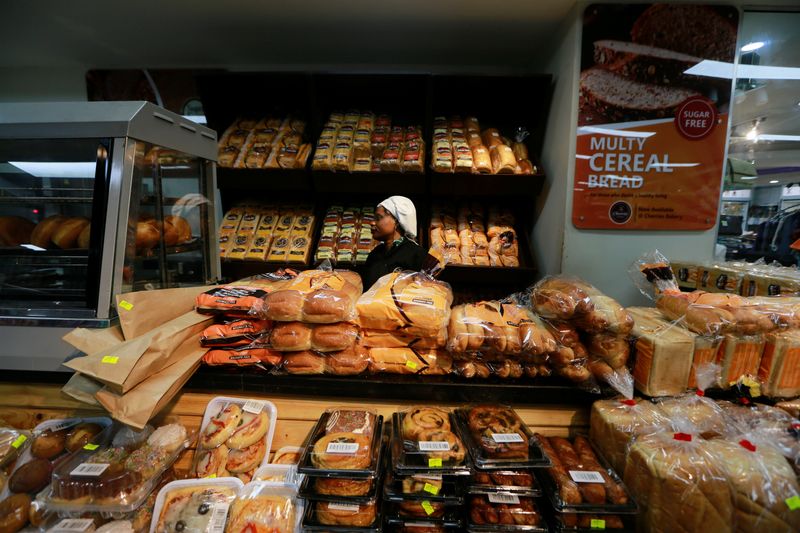By Elisha Bala-Gbogbo
ABUJA (Reuters) -Nigeria's inflation kept climbing in March, reaching a 28-year high of 33.20% in annual terms, driven by soaring food and energy costs despite central bank rate hikes aimed at halting its ascent.
The latest data from the National Bureau of Statistics marks the 15th month in a row that consumer inflation had risen. It was 31.70% in February.
Inflation has not been this high in Africa's largest economy and most populous nation since early 1996, leaving millions of people struggling to meet basic needs.
The statistics office said food and non-alcoholic beverages were the biggest contributors to the pickup in inflation.
Food inflation rose to 40.01% year-on-year, from 37.92% a month earlier.
Price pressures have been spurred by reforms implemented by President Bola Tinubu in his first year in charge, chiefly ending a costly petrol subsidy and twice devaluing the naira currency.
The government also recently increased electricity tariffs for consumers who use the most power as it seeks to wean the economy off subsidies that have weighed on public finances.

Last week Tinubu's government began distributing 42,000 tons of grains such as corn, sorghum and millet to help vulnerable households.
The central bank has twice raised interest rates this year to try to get price pressures under control and expects inflation to moderate from May.